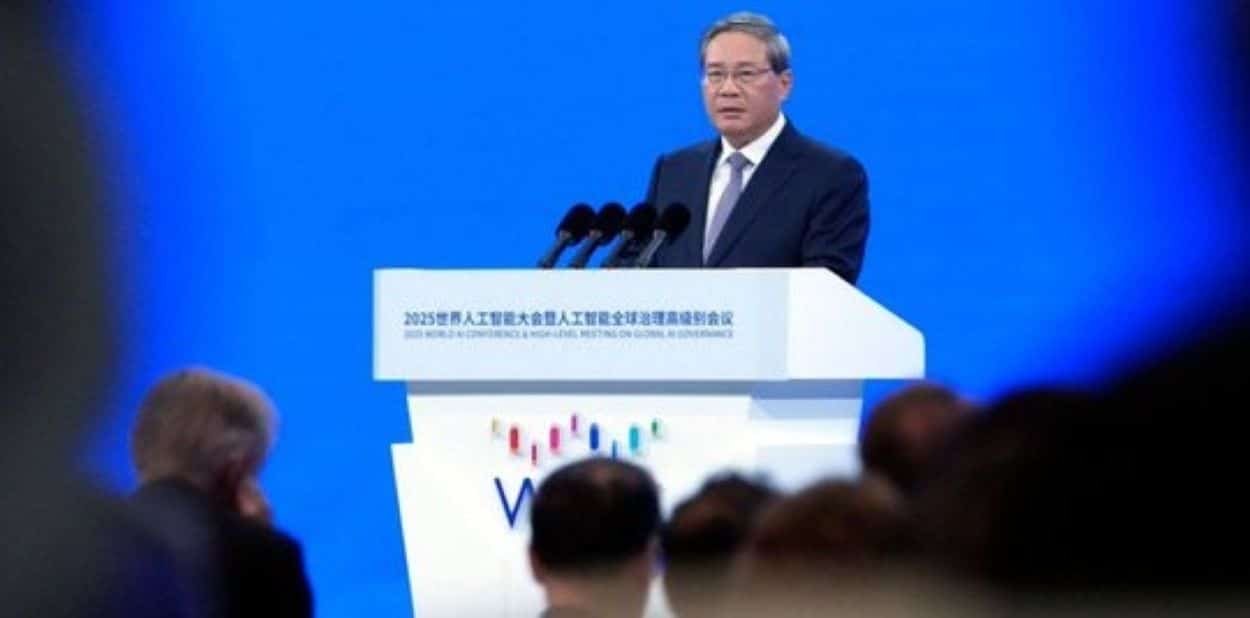Chinese Premier Li Qiang announced plans for a global AI cooperation organisation at the World Artificial Intelligence Conference in Shanghai. This initiative positions China as an alternative to U.S. dominance in AI regulation and development. The goal is to promote equitable access to AI, particularly for countries in the Global South, in light of U.S. export restrictions.
Li Qiang emphasised the need to establish a global AI governance framework based on broad consensus. This organisation, which may be headquartered in Shanghai, aims to coordinate AI regulation, share technological advancements, and promote equal access to AI, particularly for developing nations. Vice Foreign Minister Ma Zhaoxu emphasised the importance of pragmatic cooperation, engaging with over 30 countries, including Russia and South Africa. China’s recently released action plan invites global stakeholders to participate in a cross-border, open-source AI community.
China's Premier Li proposes global AI cooperation organization https://t.co/n9R9rzPQI3
— Nikkei Asia (@NikkeiAsia) July 26, 2025World AI Conference
The Shanghai conference, which was attended by over 800 companies, showcased more than 3,000 products, including 40 large language models and 60 intelligent robots. Notable speakers included Geoffrey Hinton and Eric Schmidt, along with exhibitors such as Huawei, Tesla, and Alphabet. Li cautioned against AI becoming an “exclusive game” for only a few nations, indirectly criticizing U.S. restrictions on AI chips and talent exchange.
China will spearhead the creation of an international organization to jointly develop AI, the country’s premier told the World Artificial Intelligence Conference in Shanghai on Saturday https://t.co/oHUd3whypR
— Bloomberg (@business) July 26, 2025The Trump administration’s July 23 AI blueprint aims to expand U.S. AI exports to allies, countering China’s advances, per Bloomberg. Washington’s restrictions on Nvidia chips and chipmaking equipment, citing military concerns, have fueled tensions. Despite this, China’s AI breakthroughs, such as Baidu’s Ernie model, draw scrutiny from the U.S., per The Wall Street Journal.
Li highlighted AI’s risks, including chip shortages and fragmented governance, advocating for inclusive regulation. China’s focus on the Global South aligns with its Belt and Road Initiative, offering technology sharing to nations like Zimbabwe and Laos. The proposal counters U.S.-led frameworks, emphasising open access.
China’s AI cooperation initiative challenges U.S. influence, promoting global equity and balance. The Shanghai conference underscores its technological ambitions amid escalating rivalry.






